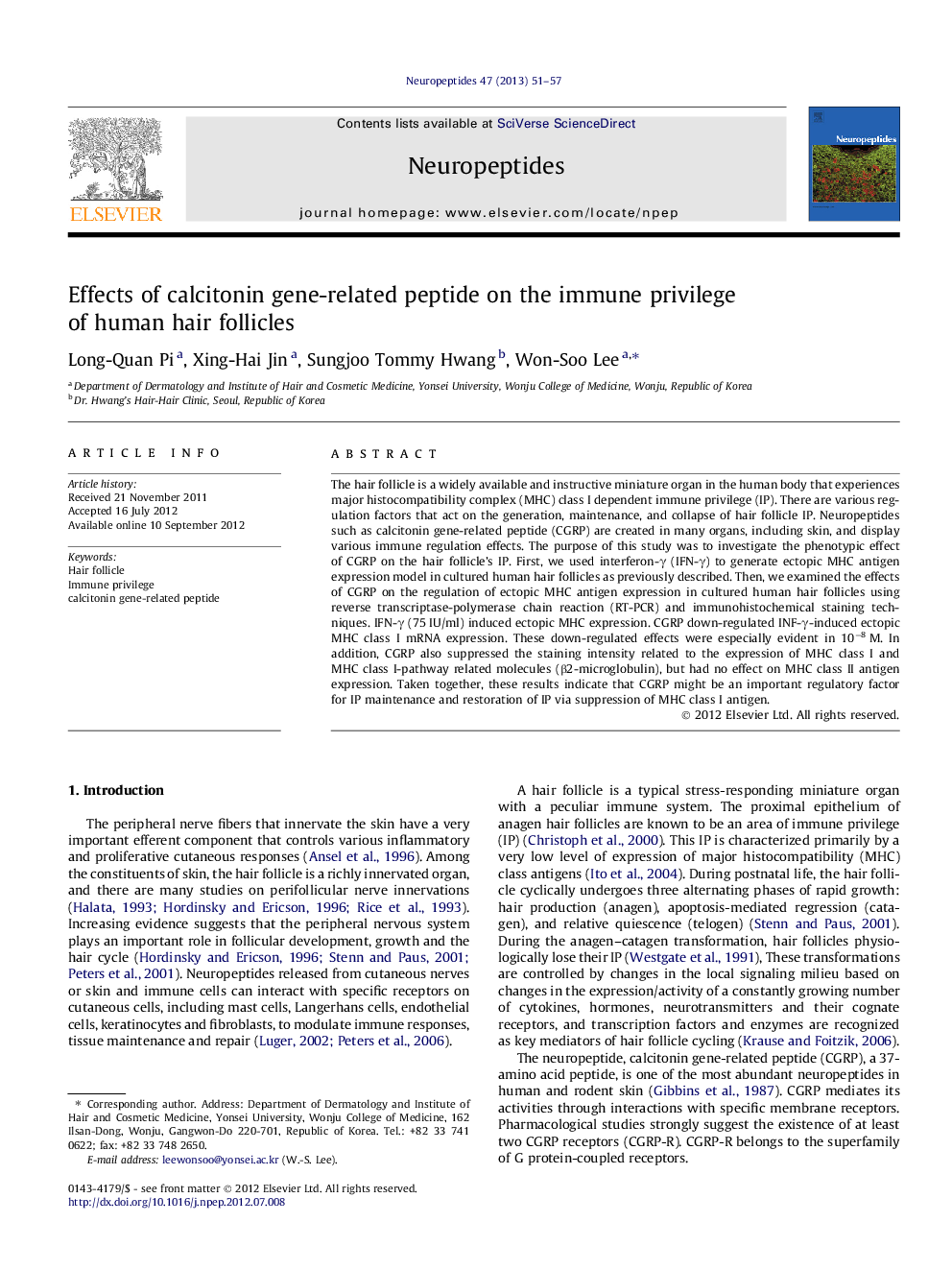| کد مقاله | کد نشریه | سال انتشار | مقاله انگلیسی | نسخه تمام متن |
|---|---|---|---|---|
| 2808170 | 1157737 | 2013 | 7 صفحه PDF | دانلود رایگان |

The hair follicle is a widely available and instructive miniature organ in the human body that experiences major histocompatibility complex (MHC) class I dependent immune privilege (IP). There are various regulation factors that act on the generation, maintenance, and collapse of hair follicle IP. Neuropeptides such as calcitonin gene-related peptide (CGRP) are created in many organs, including skin, and display various immune regulation effects. The purpose of this study was to investigate the phenotypic effect of CGRP on the hair follicle’s IP. First, we used interferon-γ (IFN-γ) to generate ectopic MHC antigen expression model in cultured human hair follicles as previously described. Then, we examined the effects of CGRP on the regulation of ectopic MHC antigen expression in cultured human hair follicles using reverse transcriptase-polymerase chain reaction (RT-PCR) and immunohistochemical staining techniques. IFN-γ (75 IU/ml) induced ectopic MHC expression. CGRP down-regulated INF-γ-induced ectopic MHC class I mRNA expression. These down-regulated effects were especially evident in 10−8 M. In addition, CGRP also suppressed the staining intensity related to the expression of MHC class I and MHC class I-pathway related molecules (β2-microglobulin), but had no effect on MHC class II antigen expression. Taken together, these results indicate that CGRP might be an important regulatory factor for IP maintenance and restoration of IP via suppression of MHC class I antigen.
Journal: Neuropeptides - Volume 47, Issue 1, February 2013, Pages 51–57